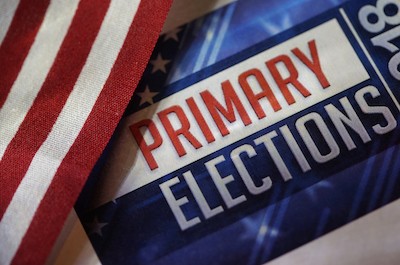
What Are Congressional Midterm Primaries - 2026 Update - Check Your Primary Election Schedule
Why Your Vote Matters for 2026 Congressional Midterm Primaries - Make it Count!
Let's think of every spring as a fresh start for our democracy. Every even-numbered year, primary elections take place. Largely over the first half of the year, voters in every state will decide which political candidates will be running for Congress in the November congressional midterm election.
As a republic, the states hold the power to set the rules of their elections and there are variations. Here are the basics…!
What’s a primary election anyway?
Think of primaries as a way to narrow down the field of candidates to those who will ultimately appear on the ballot in the general election. A primary election permits voters to decide which candidates for office will become the parties’ nominees in an upcoming general election. During primary elections, we collectively winnow down pools of candidates, the winners of which are voted on for office in the general election.
The upcoming Midterm Congressional Primaries will decide which candidates will be nominated to represent their political parties for each congressional race on the ballot across all states. Congress is consequential. The difference between winning and losing is choosing the right candidate to take the race forward. That's what you do in the Midterm Primaries.
See the Upcoming 2026 Primary Dates Chart
And what comes after the primaries? What's at stake in this upcoming Midterm Congressional General Election come November: All 435 seats in the U.S. House of Representatives, and a varying number each midterm of the 100 seats in the U.S. Senate, plus handfuls of other state offices and ballot measures.
Who can vote in a primary election?
A primary election is an election like any other. Whether you vote locally, vote from abroad, or are in the military - you can vote in the primaries. You can vote at the polling place, vote early or request an absentee ballot, per your state's guidelines.
- You just need to be aware that each state sets the rules for its own primary election. Some primaries are open, meaning any (usually registered) citizen may vote for any party’s candidate, even if that voter is affiliated with a different party or no party at all.
- Some other states hold closed primaries, meaning only citizens who are registered with the party may vote in that election.
- Still others hold hybrid primaries (which partially open or partially closed).
- Most important is to register to vote and be sure that your party affiliation is clear. If you want to change parties, re-register.
Why does it matter? Why should I vote in the primary?
Selection of candidates determines a party’s agenda, its character, and how it will govern. How parties conduct themselves, moreover, impacts the very nature of our democracy.
If you ever wondered how that person with that set of priorities got elected to Congress, the short answer is “primaries:” those who vote at primaries decide who appears on the ticket at the general election. And those elected at the general election dictate how the state and country are governed, essentially determining our democracy’s course.
When you vote in a primary election, you empower yourself, your community, and your country. As a voter, you help decide the agenda at all levels.
Midterm elections are important!
It isn’t just the U.S. president who governs our country; he or she does that in coordination with the country’s two other branches: legislative and judicial. At the midterms, you decide who goes to Congress to represent your state’s interests. So you help set the country’s priorities for the next several years when you vote in both the primaries and midterm general elections.
To stay the course of our democracy, we must improve our usual 20% participation in primary elections to a vast majority, consistently. You, the voter, have that power.
Democracies are often graded by the legitimacy of their elections, and legitimacy in a democracy comes from the people governed. Not some, not a few, but all eligible citizens. At US Vote, we believe that Every Citizen is a Voter and we are here to help you obtain and cast your ballot.
- Check my ID requirements for the primary and general elections
- Register to vote
- Request your absentee ballot
Everything You Need to Know to Participate in the 2026 Midterm Primaries